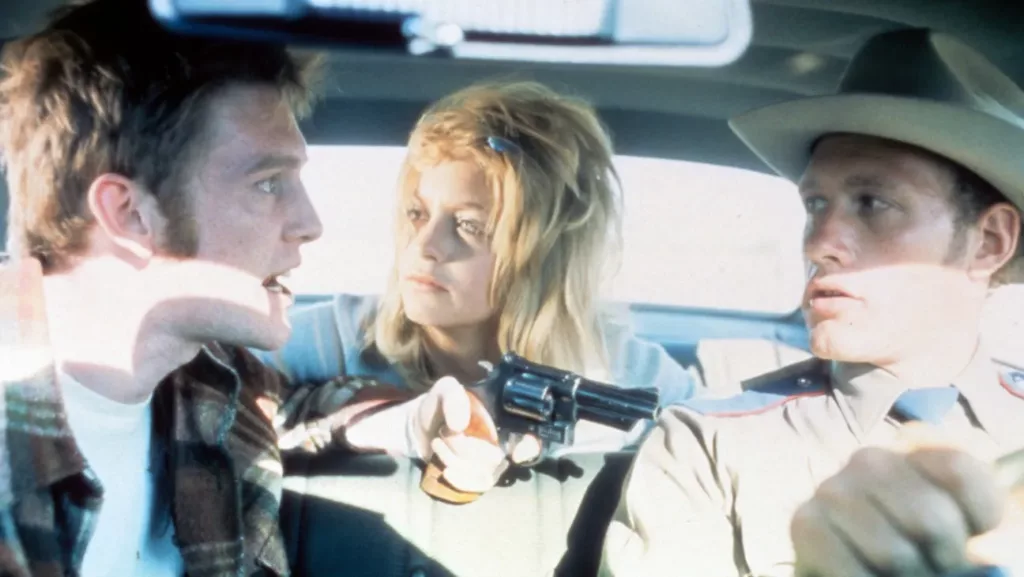In a heartfelt celebration of cinema’s enduring power, legendary filmmaker Steven Spielberg commemorated the 50th anniversary of his directorial debut, “The Sugarland Express,” at the Tribeca Film Festival. The screening and subsequent discussion offered a rare glimpse into the humble beginnings of one of the most influential directors of our time.
“You’re the first audience to ever see ‘Sugarland Express’ in 50 years,” Spielberg quipped, acknowledging the film’s short-lived theatrical run back in 1974. Despite positive reviews, Universal Studios pulled the movie from theaters after a mere two weeks, a fate Spielberg humorously attributed to audiences expecting a lighthearted Goldie Hawn picture but instead being confronted with a shocking conclusion.
Inspired by a real-life incident involving a Texas couple’s dramatic pursuit to reclaim their child from welfare authorities, “The Sugarland Express” marked Spielberg’s transition from television to the big screen following the success of his TV movie “Duel.” As the director recounted, casting Hawn, known primarily for her comedic roles at the time, was a risky move that ultimately paid off, with her “pure and honest heart” convincing producers David Brown and Richard Zanuck to greenlight the project.
Spielberg expressed gratitude towards Hawn, who appeared in a video tribute, thanking him for entrusting her with the role of Lou Jean Poplin and reflecting on the enduring impact of their collaboration. “Admire him, love him, and amazed that this young man that I worked with so many years ago has made movies that will go on and on and on — and live forever. I love you, Steven,” Hawn shared.
Throughout the discussion, Spielberg fondly reminisced about the film’s production, from working with acclaimed cinematographer Vilmos Zsigmond and composer John Williams, both pivotal figures in his early cinematic ventures, to casting decisions that shaped the movie’s authenticity. He praised actor Ben Johnson’s understated yet powerful performance, particularly in a poignant scene where his character, Capt. Harlin Tanner, exchanges a subtle, meaningful glance with Hawn’s Lou Jean.
“It’s about the faces, it’s about the characters, it’s about who they are to each other,” Spielberg reflected. “The complexity [of the movie] was more about the people than the landscape.”
While acknowledging disagreements with Universal Studios over the film’s ending, which executives insisted include a reassuring message about the characters’ safety, Spielberg remained steadfast in maintaining the movie’s integrity. “People still didn’t come out to see the movie!” he quipped, underscoring the disconnect between studio expectations and audience reception.
Yet, despite its initial commercial failure, “The Sugarland Express” served as a pivotal stepping stone in Spielberg’s illustrious career, paving the way for his subsequent collaborations with Brown and Zanuck on the legendary blockbuster “Jaws.” The director credited their support and encouragement as instrumental in fueling his creativity and shaping his approach to storytelling.
As the evening drew to a close, Spielberg’s reflections on “The Sugarland Express” resonated with a deeper significance, reminding attendees of the power of perseverance, artistic vision, and the indelible impact a single film can have on a career spanning decades. From its humble beginnings to his current status as a cinematic legend, Spielberg’s journey serves as an inspiration to aspiring filmmakers and a testament to the enduring magic of the silver screen.
